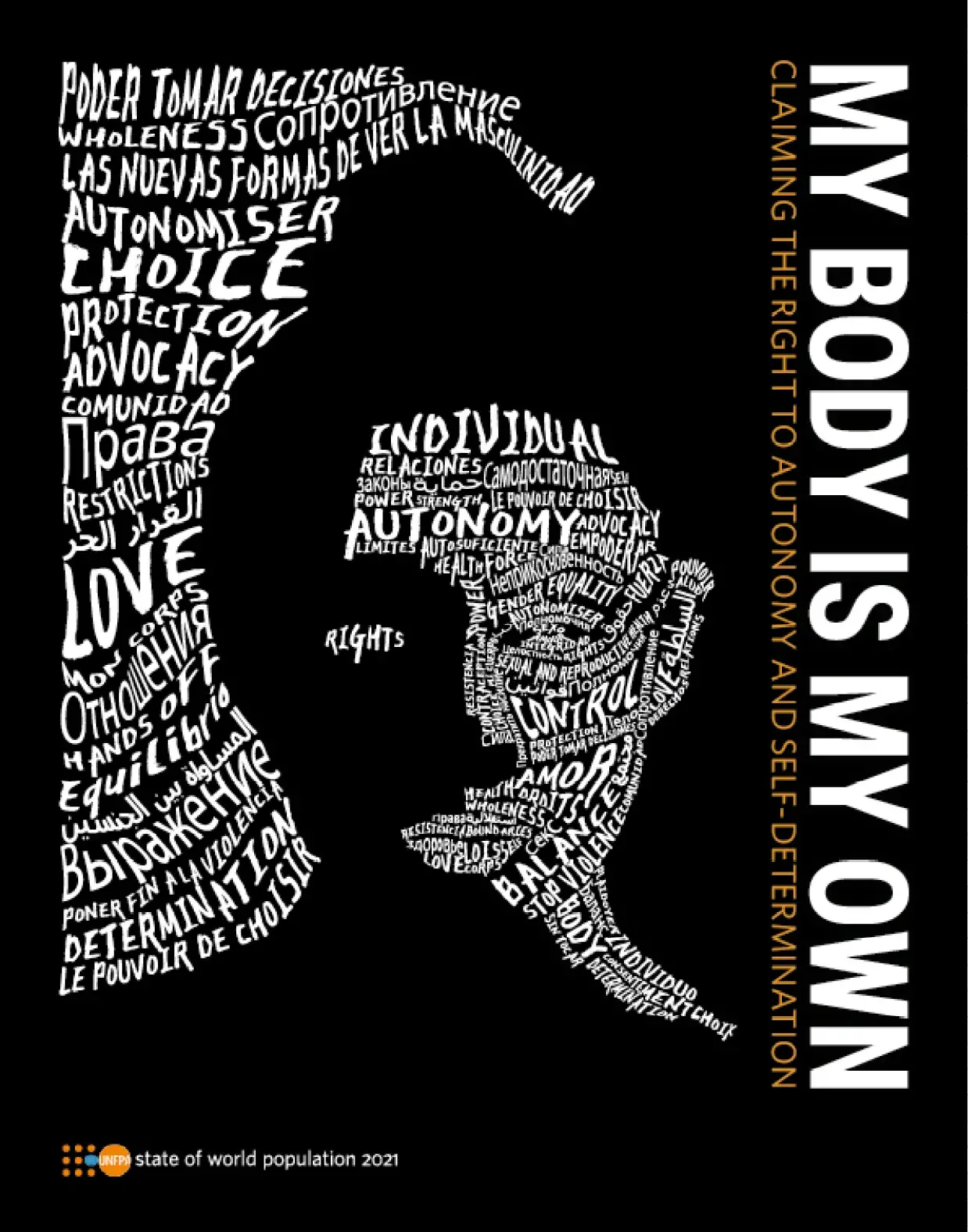Nearly half of women in 57 developing countries are denied the right to decide whether to have sex with their partners, use contraception or seek health care, according to UNFPA's 2021 flagship State of World Population report.
For the first time, a United Nations report focuses on bodily autonomy: the power and agency to make choices about your body, without fear of violence or having someone else decide for you. This lack of bodily autonomy has massive implications beyond the profound harms to individual women and girls: potentially depressing economic productivity, undercutting skills, and resulting in extra costs to health care and judicial systems.
Key findings: my body, but not my choice
Through this groundbreaking report, UNFPA is measuring both women’s power to make their own decisions about their bodies and the extent to which countries’ laws support or interfere with a woman’s right to make these decisions. The data show a strong link between decision-making power and higher levels of education.
The report shows that in countries where data are available:
- Only 55 per cent of women are fully empowered to make choices over health care, contraception and the ability to say yes or no to sex.
- Only 71 per cent of countries guarantee access to overall maternity care.
- Only 75 per cent of countries legally ensure full, equal access to contraception.
- Only about 80 per cent of countries have laws supporting sexual health and well-being.
- Only about 56 per cent of countries have laws and policies supporting comprehensive sexuality education.
For the interactive version of the report, and translated versions in official UN languages, visit https://www.unfpa.org/sowp-2021


